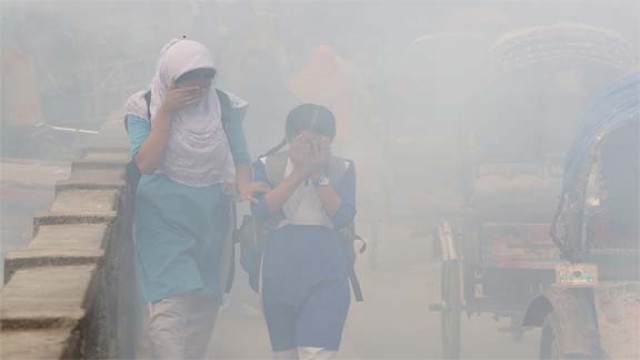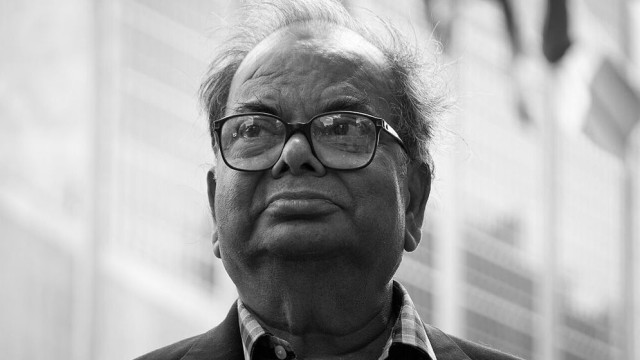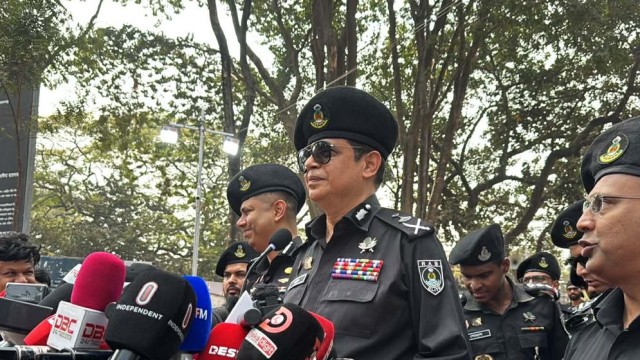focusing on Dhaka and the surrounding areas At 10:00 am on sunday morning, Dhaka's air quality index (AQI) score of 190 placed it 3rd out of all cities in the world with the worst air quality.
The top two places on the list were held by Lahore in Pakistan, Delhi in India with Air Quality Index scores of 225 and 201 respectively.
The Air Quality Index (AQI), which provides information on possible health effects for locals, is essential for communicating the daily air quality in a given city.
The air is considered "unhealthy for sensitive groups" when the AQI value for particle pollution is between 101 and 150, and "unhealthy" conditions are indicated by readings between 150 and 200. An AQI score of 201 to 300 means "very unhealthy" air quality, and scores above 300 are deemed "hazardous," indicating severe health risks. According to the World Health Organization, air pollution kills almost seven million people yearly.
This is primarily because of the increased mortality from lung cancer, heart disease, stroke, acute respiratory infections, and chronic obstructive pulmonary disease.
The air quality in Dhaka has long been a problem, and it worsens in the winter. At 168 g/m, Dhaka's PM2.5 level is 26.3 times higher than the World Health Organization's (WHO) recommended threshold.































Comment: